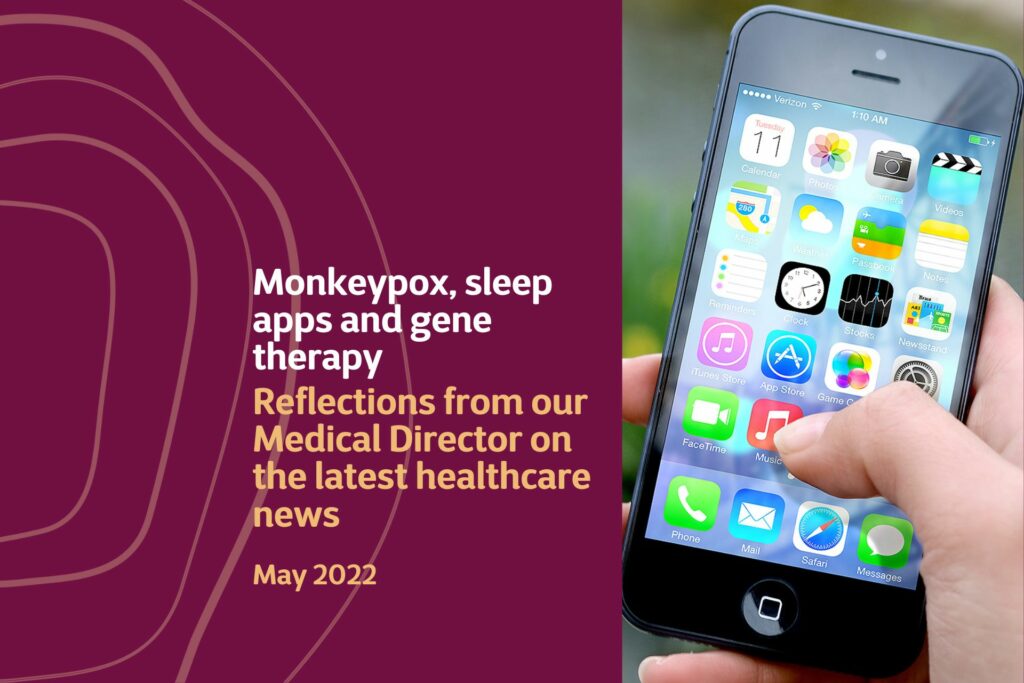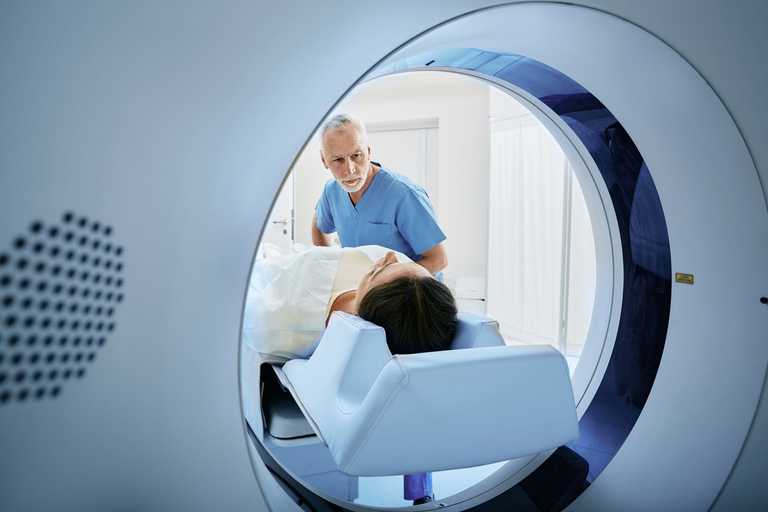Complete Diagnostic Care with Prime Diagnostic Plus
Our all-inclusive diagnostic scanning package offers everything you need for quick, expert care—all for a fixed price.
Learn more

Your appendix is a small narrow-necked 10cm/four-inch-long tube attached to the caecum, which is where your small bowel joins your large bowel. Its purpose is unclear, although it contains many immune cells and is thought to play some part in our immunological defences.
Situated just above the right groin, it can occasionally become inflamed and initially you will develop pain around your umbilicus (tummy button), but as the appendix becomes more inflamed it touches the abdomen wall and you then start to feel the discomfort move from the centre down to the right groin.
The usual treatment for appendicitis has been to remove it. The fear is that it might perforate and leads to peritonitis and possible death. However, this traditional treatment is increasingly being challenged.
A paper from the British Medical Journal (BMJ) discusses a recent study which was in the American College of Surgeons journal comparing antibiotic treatment with traditional surgical removal.
The researchers studied 1552 patients across 25 hospitals and compared patients treated with a 10-day course of antibiotics versus the usual surgical removal. They concluded that antibiotics were ‘not inferior’ to an operation as judged by patients completing a quality-of-life questionnaire 30 days after the event. However, by 90 days, more than a quarter of the antibiotic group had gone on to have an operation.
Complications were also more frequent in the antibiotic group.
The take-home message however is pretty clear – seven out of 10 patients with appendicitis avoided the need for surgery. But of course, no operation is without risk, so initially using a conservative treatment is undoubtedly the safest approach.

A topic that has certainly been grabbing recent headlines is Monkeypox. It seemed to have come out of nowhere and people are begging to question whether the next pandemic is lining up on the starting blocks.
Firstly a few facts; up to 30th May, the UK had seen 90 cases, with a global figure of near 500.
Monkeypox is a virus similar in structure to smallpox. As its name suggests, it was first identified in monkeys and is confined mainly to Central and West Africa.
It typically causes mild symptoms including fever, headaches, muscle aches, fatigue and a chickenpox like rash, often starting on the face before spreading to the hands and feet. Most people recover within 14-21 days without treatment.
There are two separate strains, the Congo strain and the West African strain. The Congo strain has a death rate of 1-10%, whilst the West African strain leads to death in approximately 1% of cases; this is the strain that has been identified in the UK.
Children infected with monkeypox are more likely than adults to become seriously ill.
Spread usually occurs through large respiratory droplets, mainly due to face-to-face contact; however, the virus also spreads through bodily fluids. Many of the recent cases have been associated with men having sex with men.
There are no specific treatments for monkeypox, but the smallpox vaccine has been shown to be up to 85% effective in preventing the infection. In addition, some antiviral medicines are also being used to control the outbreak.
This doesn’t appear to have the hallmark of a pandemic. It’s primarily confined to specific groups and is spread by close physical contact, including sex. So why all the excitement?
This outbreak will likely be contained and managed using traditional public health contact tracing measures, isolation, and active management of contacts. However, any virus that lives in animals and moves across to people is a cause for concern. Jumping between species can lead to mutations and to a very different virus. That’s the worry. The interface between man and animals is the battleground where we must fight to stop the next pandemic.

The National Institute of Clinical Excellence (NICE) has recently approved the ‘Sleepio’ app as an effective treatment for insomnia. NICE is an ‘arms-length’ body that independently reviews the evidence for various medical treatments and then issues guidelines on managing and treating different clinical conditions. NICE guidance is generally accepted as best practice in the UK and globally. Clinicians need to explain if they choose to deviate from its guidance, so NICE approval is a real badge of approval for a digital app.
Sleepio uses AI to develop tailored cognitive behavioural treatment (CBT) programmes for individuals suffering from insomnia. It’s web-based and is available on mobile apps.
The current best practice for insomnia is to initially offer advice on good sleep hygiene, such as developing a sleep routine, not overheating your bedroom, and minimising alcohol and caffeine before bed. If these fail to resolve the insomnia, doctors usually prescribe a short 3-7 day course of a hypnotic such as Zopiclone. The problem with this type of drug though is that it can lead to dependence on the drug and continuing poor sleep if taken regularly.
It is now recognised that the gold standard is CBT, but this is very difficult to access on the NHS. For £45 per individual, Sleepio provides online CBT tailored to your insomnia. It’s been tested in 12 randomised controlled studies and was found to be better than the routine advice or medication (It’s probably similar to face-to-face CBT in its effectiveness).
The app provides a six-week self-help programme with interactive CBT sessions. The session focuses on ‘flushing out’ those thoughts, behaviours, and feelings which lead to insomnia and helping the individual manage them.
This is a great example where tech is now working as a main-line medical treatment.

Let’s stay on the subject of new developments and briefly touch on an article in last week’s New Scientist concerning gene therapy. The article reports on several genetic conditions in children that used to be fatal and how gene therapy is now starting to give hope to these challenging conditions.
It reports on how a team at the University of California, Los Angeles, Kohn and his colleagues, are testing out a gene therapy for a rare condition, leukocyte adhesion deficiency type-1 (LAD-1).
This is generally a fatal condition leading to death within two- years. This is because a certain type of immune cell called leukocytes cannot travel around the body to where they are needed, for example, at the site of an infection or injury. This leads to what would typically be simple skin or lung infections becoming chronic. The only current treatment is a stem cell transplant, which is not without considerable risk.
The team are trialling replacing the defective genes with normal versions. These are into the child’s DNA using a virus that has been modified not to cause harm, just to work as a transport vehicle for the new DNA.
Nine children have received the gene therapy since 2021 and so far, none of them has developed chronic skin or lung infections; they are all leading normal lives. It is too early to celebrate yet as many years of study need to be done to ensure there are no unintended consequences; however, this looks pretty miraculous. And this is just one of many such approaches. There’s no doubt that gene therapy is starting to significantly impact these rare and fatal childhood diseases.
The views expressed in the blog are my own personal views and are not intended as medical advice.
Our all-inclusive diagnostic scanning package offers everything you need for quick, expert care—all for a fixed price.
Learn morePrime Health Surrey has enhanced its healthcare offering with the installation of a state-of-the-art CT scanner. Appointments available.
Learn moreIn partnership with the General Practice Group, we have extended our Private GP service to our centre in Harley Street, London.
Learn moreIn partnership with the General Practice Group, we have extended our Private GP service to our centre in Brighton.
Learn more

